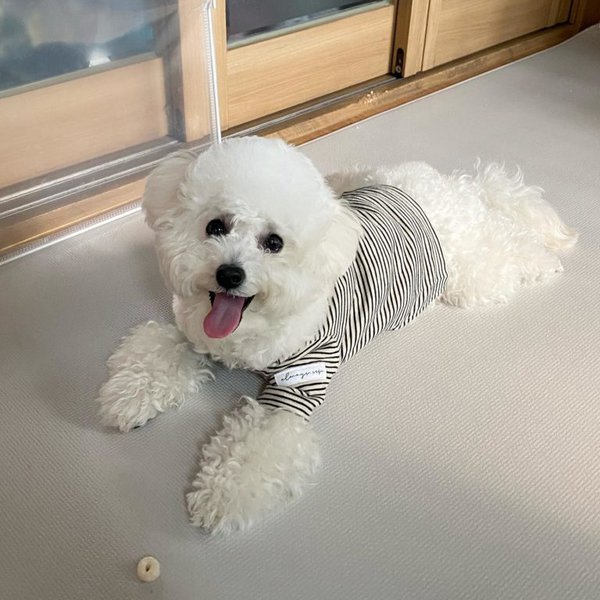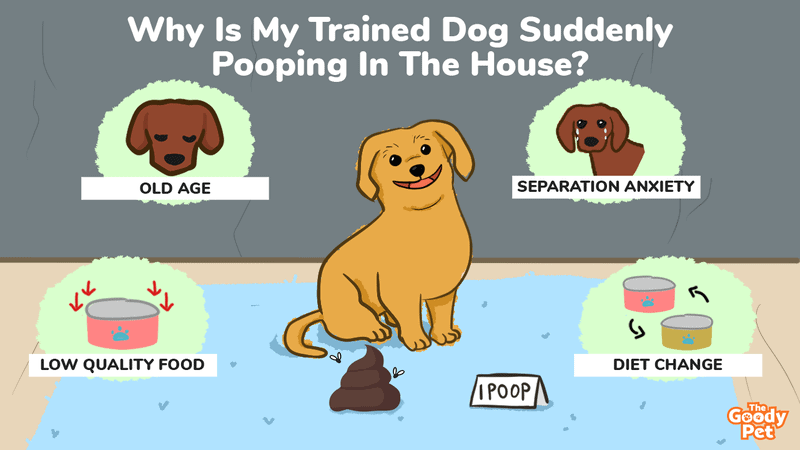Having your house-trained dog suddenly start pooping in the house is one of the most frustrating things for dog owners, especially when your dog seems to be doing it on purpose. Why does your dog do it?
While it might seem like your beloved pooch is pooping in the house on purpose, house-trained dogs are very unlikely to go inside the house deliberately. If you suddenly notice this behavior, it is a sign that something is wrong with your dog. Some reasons why a housetrained dog will poop in the house include medical problems, stress and anxiety, and age-related problems.
If you’re dealing with a dog that is “deliberately” doing their business in the house, you definitely want to know the reasons behind this behavior, and what you can do about it.
In this article, we will take a look at all matters related to your dog pooping in house, including whether dogs poop in the house when they are mad, why your dog suddenly starts pooping in the house at night, how to train your dog to let you know when they want to go outside, and other reasons that could cause your dog to do their potty business indoors.
The article will also look at how to stop a dog from peeing or pooping in the house, as well as the hardest dog breeds to potty train. Before diving into all that, however, let’s address your topmost concern. Is your dog pooping in the house out of spite, or in an attempt to get back at you?
Do Dogs Poop Inside Out Of Spite?
No, dogs do not poop inside out of spite. This is just a reason people come up with because we assume dogs view the world the same way as humans do.
Sometimes, it will seem like your dog poops in the house to revenge for something you did. For instance, you deny your pooch a chance to sleep on your bed or chase them from the couch, only to find that they pooped in the living room the next morning.
In such situations, it can easily look like your dog pooped in the house to get back at you for chasing them from your bed or the couch.
In reality, however, it doesn’t work this way. Dog’s actions are usually motivated by two things – instincts and desire for reward.
For instance, when potty training your dog, your dog learns that doing their business outside makes you happy, and when you’re happy, you give them treats. Therefore, they start going outside because this will earn them a reward.
When it comes to pooping inside to get back at you, however, your dog doesn’t get any reward from this action. This means that there is nothing to motivate your dog to do something out of spite. Your dog will only do something out of instinct or because of the potential for a reward.
Therefore, whenever your dog poops in the house after you’ve done something you think “wronged” them, they don’t do it as revenge. Instead, it happens because your actions may have affected your dog in another way.
For instance, if your dog is used to sleeping on your bed, but then you chase them away, this changes their routine and can make them anxious. This anxiety can lead to a potty accident.
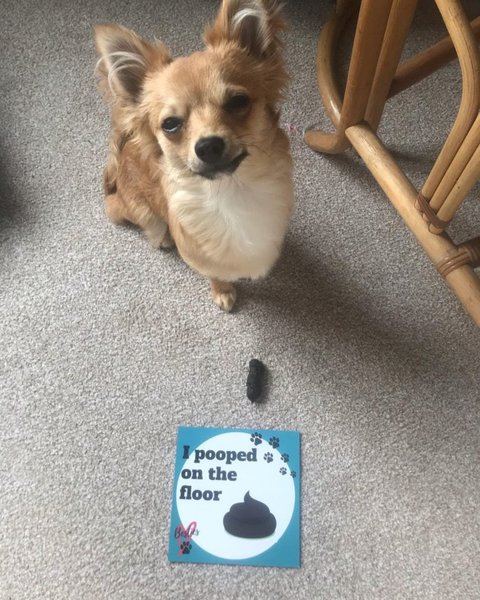
Do Dogs Poop In The House When They Are Mad?
Just like your dog cannot poop in the house out of spite, your dog does not poop in the house when they are mad.
Most situations that make your dog mad also lead to stress and anxiety, which can in turn cause your dog to have a potty accident.
If you notice that your dog always poops in the house when they are mad, avoid the temptation to want to punish them. Punishing them will only lead to more stress and anxiety, thus increasing the likelihood of having another accident.
For instance, let’s say your dog wants to join you on a car trip, but you decide to leave them behind. When you get back, you discover that your doggie has pooped in the house.
Instead of punishing them, what you should do instead is to give them a treat the next time you leave them behind so that they don’t see being left behind as an anxiety-inducing event.
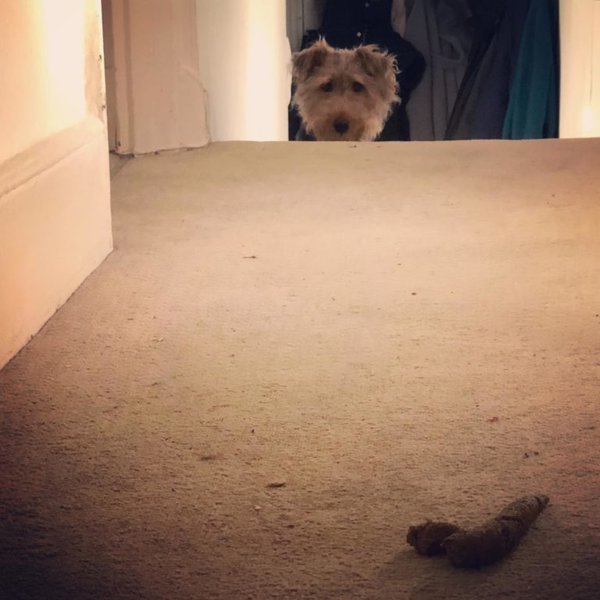
Why Is My Dog Suddenly Pooping In The House At Night?
When a potty-trained dog suddenly starts pooping in the house only at night, this can be caused by things like a diet change, a schedule change, lack of adequate breaks, or age-related issues.
Here’s how these factors can result in your dog pooping in the house at night…
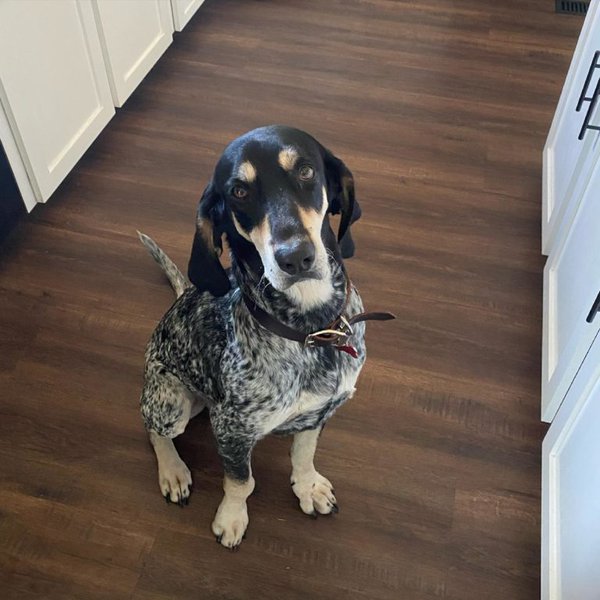
Diet Change
When you suddenly change your canine buddy’s diet, the new food can cause some bowel upsets before your dog gets used to it. Having bowel upsets will often result in your dog needing to poop more often.
During the day, this is not a problem, because your dog can easily go out and do their business. At night, however, they can’t go out, and because they can’t hold it till morning, their only option is to do it in the house.
The best way to deal with this is to avoid sudden diet changes. If you want to change your furry friend’s diet, do it gradually so that their bodies have enough time to adjust to the changes.
Change In Schedule
Changing one aspect of your dog’s schedule can also affect their bathroom schedule. For instance, if you start feeding your dog later in the night, they will not have time to go out before sleep time. The urge will come later in the night when you’re not awake to let them out, so they’ll just do their business indoors.
To avoid this, you should make necessary adjustments to ensure that any schedule changes will not affect your doggie’s potty schedule.
Lack Of Adequate Breaks During Daytime
If your dear fido is not getting enough bathroom breaks during the day, they’ll just hold it in until they can’t do it anymore. If this point arrives in the middle of the night, they’ll have no choice but to relieve themselves indoors.
The solution to this is to ensure your dog has enough potty breaks within the day. If you’re not around to let them out during the day, find a pet sitter, or have someone who can come at certain times to let your pooch out for a potty break.
Age Related Health Problems
As your dog gets older, there’s a high chance that they could get affected by some age-related health problems. Some of these medical problems can make it harder for your pooch to hold it in for long periods of time, and since they don’t have any bathroom breaks at night, they’ll just go indoors.
For age related health issues, you’ll need to see a vet and have the problem treated. Sometimes, however, there’s not much that vets can do for your pooch, in which case you should consider getting your four-legged friend some doggie diapers.
How Do I Get My Dog To Tell Me That It Needs To Go Outside To Poop?
The best way to teach your dog to tell you that they need a potty break is to train them to ring a bell whenever they want to go out and poop.
The good thing about having your dog use a bell to alert you when they need a bathroom break is that this action cannot be confused with any other action your dog does normally.
For instance, if you teach your dog to bark when they need a bathroom break, they’ll still bark for other reasons. With a bell, however, you have a clear idea of what exactly your dog wants.
To train your dog to use a bell to alert you when they need a potty break, the first thing you need to do is to get a bell. We recommend BLUETREE Premium Quality Dog Doorbells.
These doorbells are designed with high-quality materials that will withstand the pull of your dog, and come with three-level length adjustments to allow your dog reach the bell, regardless of its size.
Once you’ve bought the bells and hung them on the door, it’s time to start training. Start by encouraging your pooch to touch the bells with their nose or paw. Once the bells ring, take your dog outside and give them some praise and treats. Repeat this until your dog has learned to associate the ringing of the bells with going outside.
From there, whenever your dog touches the bells, take them outside, lead them to their designated potty area and give them the command to poop. When they do, give them some treats and lots of praise. If they don’t poop, withhold the treats and praise.
With time, your four-legged buddy will learn to associate the ringing of the bells with going outside for a potty break, and whenever they need to go, they’ll ring the bells to alert you. Note, however, that this training requires lots of patience and repetition.
What Else Would Make A Dog Start Pooping In The House?
Other reasons that could make your dog start pooping in the house include overexcitement during potty breaks, fear and anxiety, low quality food, age, and separation anxiety.
Here’s how these factors can lead to your dog pooping in the house…
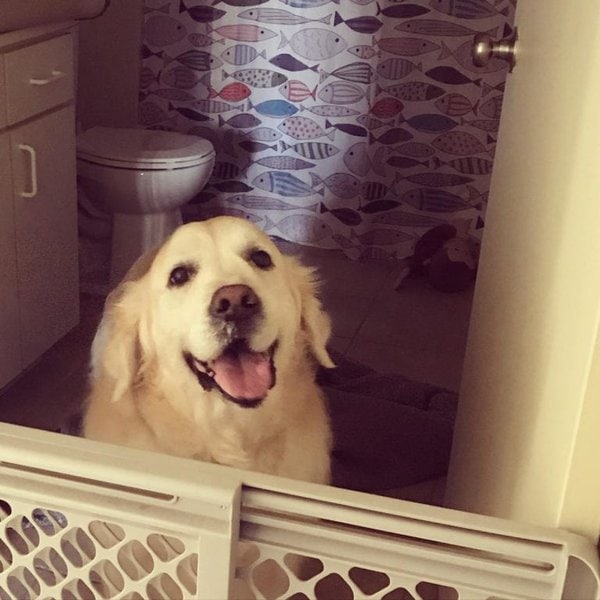
Overexcitement During Potty Breaks
If you take your dear fido out for regular potty breaks, but they still poop in the house when you bring them back, this can be caused by overexcitement during their potty breaks.
What this means is that when you take your dog out for potty breaks, there is something in the environment that makes them so excited that they forget they went out to poop. Once they get back inside, the need to poop is even more urgent, which makes them more likely to have a potty accident.
Fear And Anxiety
Pooping is a vulnerable situation for dogs. It takes time, and your dog is exposed when doing their business. Therefore, dogs will only poop when they feel safe enough to do so.
If there’s anything in the yard that makes your dog feel fearful or threatened, they’ll avoid pooping there. They’ll hold it in until they feel safe again, or until they cannot hold it any longer. If they’re unable to hold it any longer when they’re indoors, they’ll just do it there.
Low Quality Food
When you feed your pooch with low-quality food, they’ll need more of the food to get full. Eating more means they’ll also need more frequent bathroom breaks, which increases the likelihood of pooping indoors.
Age
As your dog gets older, they are at a higher risk of suffering from Canine Cognitive Dysfunction, which is the canine version of Alzheimer’s disease. When this happens, your dog can easily forget their potty training and start pooping everywhere.
Separation Anxiety
Dogs are highly social, and being left alone for long periods of time does not sit well with them. Leaving your dog alone for long periods will often cause them to become anxious, lonely and nervous, which can cause them to pee or poop, even if they are indoors.
If you notice that your dog often makes accidents when you’ve spent most of the day away from them, this is a clear sign that your dog is pooping indoors because of separation anxiety.
How Do You Stop A Dog From Peeing And Pooping In The House?
To stop your dog from peeing on the carpet, you should schedule regular potty breaks, watch out for signs that your dog wants to go, avoid leaving your canine buddy alone, reward good behavior, and use repellents to prevent resoiling.
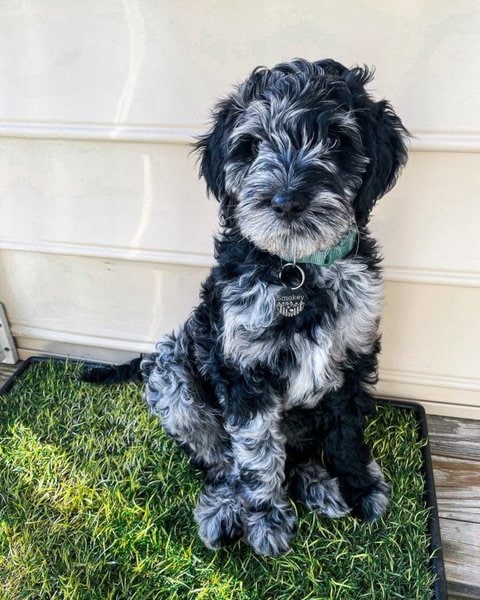
Schedule Frequent Potty Breaks
When your dog is getting frequent potty breaks at predictable intervals, they are less likely to go in the house, because they have multiple opportunities to empty their bowels. Younger dogs and smaller-sized dogs will need more frequent breaks than bigger dogs.
If you notice that your pooch tends to have accidents at specific times, you can introduce a bathroom break at these times to ensure they have an opportunity to do their business outside.
Watch For Signs Your Dogs Needs A Potty Break
Sometimes, your dog would have an accident because they wanted to go outside, but you did not let them out. To avoid this, always be observant of your dog and learn to recognize signs that show your dog needs a potty break.
Some signs that show a dog needs a bathroom break include general restlessness, scratching and whining at the door, sniffing, and circling. If you notice any of these signs, quickly open the door and give your pooch the command to go outside.
Don’t Leave Your Dog Alone For Long
Since your dog pooping in the house can be caused by separation anxiety, you should avoid leaving your dog alone at home if you’re going to be gone for long. If you won’t be home for more than four hours, get a pet sitter to keep your dog company.
Whenever you’re home, you should also find opportunities to play around with the dog and allow them to build their bond with you.
Reward Good Behavior
The best way to teach your dog anything is through positive reinforcement. Therefore, whenever your dog goes outside when they need to poop or pee, give them a treat and lots of praise. With time, the behavior will be instilled in them, and they’ll always go outside to do their business.
Use Repellents
If you’ve tried everything else and it doesn’t work, you can use spray repellents to keep your dog from peeing in the house. Repellents usually contain scents that dogs hate. When you spray them in areas where your dog likes to pee, they’ll avoid peeing in these areas.
One of the most effective dog repellents is Bodhi Dog Not Here! Spray. After cleaning the area where your dog has peed, simply spray Bodhi Dog Not Here! Spray and you’re guaranteed that your dog will not pee in the same area again.
You can also use essential oils to get your dog to stop pooping on the carpet. A good option is Eucalyptus 100% Pure Therapeutic Grade Essential Oil. This essential oil contains all-natural ingredients and the eucalyptus scent that is a great deterrent for dogs.
If your dog always poops at one corner, this can be used at that target location. Simply apply a few drops on the carpet, and you’ll never have to worry about your dog pooping in the same area again.
What Is The Hardest Dog To Potty Train?
The hardest dog to potty train is the Bichon Frise breed, which is known for its independence and stubbornness, despite its small size.
There are several reasons why these tiny dogs are difficult to potty train. The first is their independence. Since they’re independent, they are not very eager to please, and as a result, training them can be difficult.
In addition, Bichon Frise doesn’t like going out a lot, particularly when the weather outside is cold or wet. This means getting them to go out and do their business will be a hard task.
Finally, due to their small size, it is very easy for them to do their business in the house undetected. They can easily hide in some corner of the house and do their business, and it can be days before you realize that they did it.
Other dog breeds that are difficult to potty train include Jack Russell Terriers, Dachshunds, Chow Chows, Afghan Hounds, Pugs, Chihuahuas, Dalmatians, and Pekingese.
